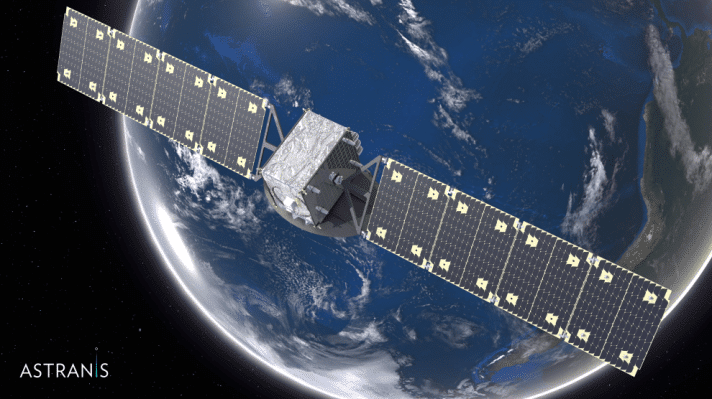Astranis raises $90 million for its next-gen satellite broadband internet service
YC-backed Astranis has raised $90 million of new combined debt and equity funding in a Series B round led Venrock, with a sizeable contribution by existing investor (and lead of their 2018 round) Andreessen Horowitz. The funding will be used to help the company launch its first commercial satellites, which will be the bedrock of its future internet service offering, aimed at connecting the massive market of underserved populations around the world.
Astranis emerged from stealth in 2018 when it announced $13.5 million in funding led by Andreessen, and revealed its plan to offer low-cost, reliable internet using geostationary satellites – a different strategy from the increasingly numerous entrants in the satellite internet race who plan to deploy large constellations of satellites into low Earth orbit that don’t stay at a fixed point relative to a specific location on Earth, but that instead hand off their connection via a kind of relay system through ground stations to offer continued service.
The geostationary model that Astranis is embracing is somewhat more similar to the existing way of offering internet connectivity from space, which employs very large communications satellite parked in geostationary orbit fairly far away from Earth. Astranis’ novel approach uses small satellites, however – spacecraft roughly 20 times smaller than the traditional variety, weigh in at around 770 lbs vs. over 14,000 lbs for the legacy kind.
Astranis has made it possible to use smaller satellites thanks in large part to its proprietary ultra-sideband software-defined radio tech, which can provide more bandwidth on much smaller and less complicated hardware, using digital vs. analog technologies. These not only save a tone of space, but can be built and launched with a turnaround time of just months, compared to many years for the large, geostationary telecommunications spacecraft of yore.
As mentioned, this is a combined debt and equity round, including $40 million of equity funding with participating by Y Combinator and others in addition to Venrock and Andreessen. The remaining $50 million of debt facility comes from TriplePoint Capital. Astranis will be looking to this year and next as the time to grow its internet service provider partnerships, as well as built out its relationships with governments and the rest of the industry.
Astranis signed an agreement with launch provider SpaceX last year for a ride for their first commercial satellite, with the aim of having that mission take place sometime as early as the fourth quarter of 2020. The company has raised $108 million to date, but has deep-pocketed competitors eyeing the same opportunity with different technologies, including SpaceX’s Starlink and Amazon’s Kuiper.


